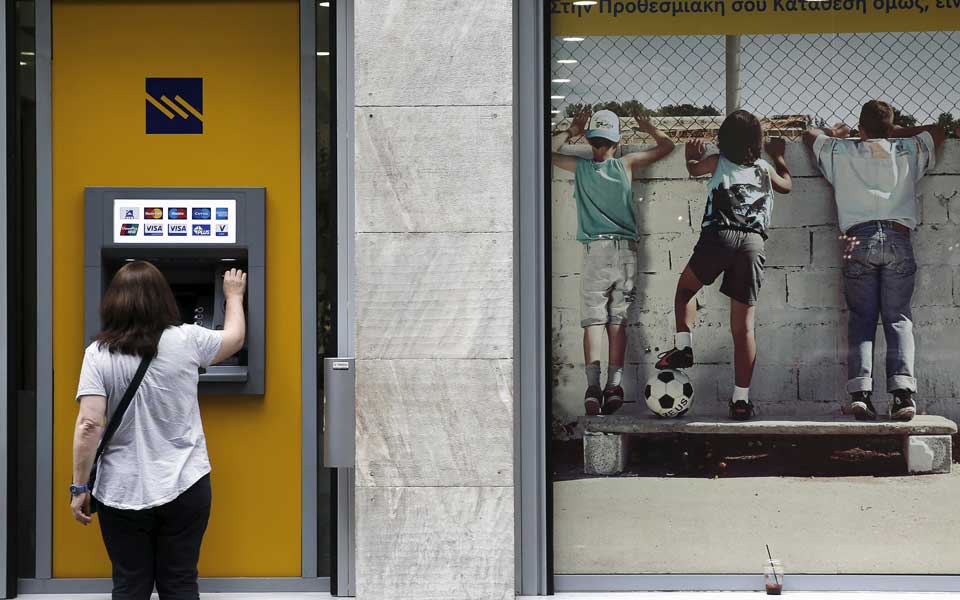Banks finally pulling their shutters up after three weeks

As of this week, all citizens will be able to make cash withdrawals of up to 420 euros in one go per week, instead of having to queue at the ATMs every day for 60 euros, as the country’s 2,500 bank branches are reopening on Monday after three weeks with their shutters down, although the capital controls will remain for some time.
The opening of the bank networks was confirmed by a legislative act published on Saturday. It also allows clients access to safe deposit boxes they may have inside the branches, estimated to number about 200,000 in total.
Banks will also offer a limited range of services to enterprises, such as paying checks into existing accounts and issuing letters of guarantee. Corporate clients will be able to open accounts for specific purposes, such as salary payment or serving corporate start-ups, which are described in detail in the legislative act.
Time deposits can be accessed, but only for special purposes that must be backed by documents, such as clearing debts to the state or the social security funds, payments to hospitals or private schools, payment of salaries and paying off expired installments to banks. However, while many clients sought to pay off debts to lenders in previous days over fears that their deposits may face devaluation in the event of a “Grexit,” the legislative act does not allow for the early payoff of loans.
Money cannot be forwarded abroad, but there is a series of exceptions that the legislative act does provide for: Clients can pay for medical or educational expenses with the presentation of the necessary documents at their bank, provided that the payment is conducted electronically through the bank into an account at a foreign lender held by the recipient of the money, and not into a foreign account held by the client.
In the case of money forwarding abroad for healthcare purposes (hospitals, doctors etc) there is a lump sum limit of 2,000 euros or the equal value in another currency. For money to be sent abroad for students studying in other countries or participating in student exchange programs, the limit is set at 5,000 euros (or the same value in foreign currencies) every three months, to cover their living expenses.
These decisions followed long discussions via teleconference between European Central Bank officials and representatives of Greece’s lenders on Friday, aimed at dealing with the high number of technical issues raised.





